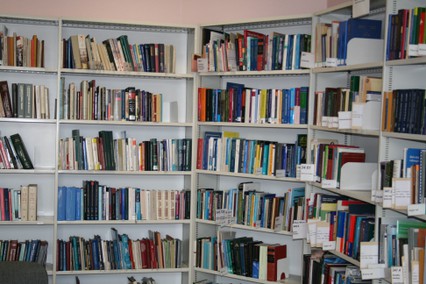Description
Public librarians acquire, organise, promote and disseminate a wide range of resources to meet the diverse needs of the community. They support independent learning and encourage reader development. They also provide a wide range of information on business, the community, careers, learning and recreation.
Public librarians may run events in the library for the local community and work with local schools and colleges.
Tasks:
- Search standard reference materials, including on-line sources and the Internet, in order to answer patrons' reference questions.
- Teach library patrons to search for information using databases.
- Keep records of circulation and materials.
- Check books in and out of the library.
- Explain use of library facilities, resources, equipment, and services, and provide information about library policies.
- Review and evaluate resource material, such as book reviews and catalogs, in order to select and order print, audiovisual, and electronic resources.
- Code, classify, and catalog books, publications, films, audiovisual aids, and other library materials based on subject matter or standard library classification systems.
- Respond to customer complaints, taking action as necessary.
- Evaluate materials to determine outdated or unused items to be discarded.
- Plan and deliver client-centered programs and services such as special services for corporate clients, storytelling for children, newsletters, or programs for special groups.
- Confer with teachers, parents, and community organizations to develop, plan, and conduct programs in reading, viewing, and communication skills.
- Develop and index databases that provide information for library users.
- Write proposals for research or project grants.
Key skills for librarian:
- Ability to embrace change: our patron populations are rapidly changing as are the technologies for serving them. We need to be able to look at how we are serving our patrons and to change our strategies if what we are doing is not working (or is not the best we could be doing).
- Comfort in the online medium: Librarians need to do so much online these days, way beyond basic catalog and database searching (which sure isn’t easy either). Librarians have to be able to use search engines and use them well. They need to be able to find quality online resources. They need to help patrons set up e-mail and teach basic Internet skills. They need to be able to troubleshoot problems users are having accessing online library resources, at least to the extent where they can figure out if the problem is on the library’s side or the user’s side.
- Ability to troubleshoot new technologies: I know many of us may wonder from time to time, did I get an MLS to fix paper jams? But that is just a part of the good customer service we provide in libraries.
- Ability to easily learn new technologies.
- Project management skills.
- Ability to question and evaluate library services.
Average salary (2013):
United Kingdom: £23,500 - £32,000, while a director/head of service may earn more than £50,000.
United States of America: $55,300 per year and hourly wages of $26.59
Australia: AU$53,779 per year
Qualifications and training required:
The path to becoming a librarian begins with an undergraduate degree from an accredited 4-year college or university, which is required for admission into graduate school. Undergraduate students are not required to study any specific major. Employers typically prefer to hire librarians who have completed a master's degree program.
Companies in profession
Best students in profession
Professions you might be interested in
Virtual internship
Company recommended study programs
Bauskas Centrālā bibliotēka
1 recommendations
Bibliotēkzinātne un informācija – maģistra studiju programma
Latvijas Universitāte
- 2 company recommendations
Latvijas Nacionālā bibliotēka
2 recommendations
Bibliotēkzinātne un informācija – maģistra studiju programma
Latvijas Universitāte
- 2 company recommendations
Bibliotēkzinātne un informācija
Latvijas Kultūras koledža
- 1 company recommendations


